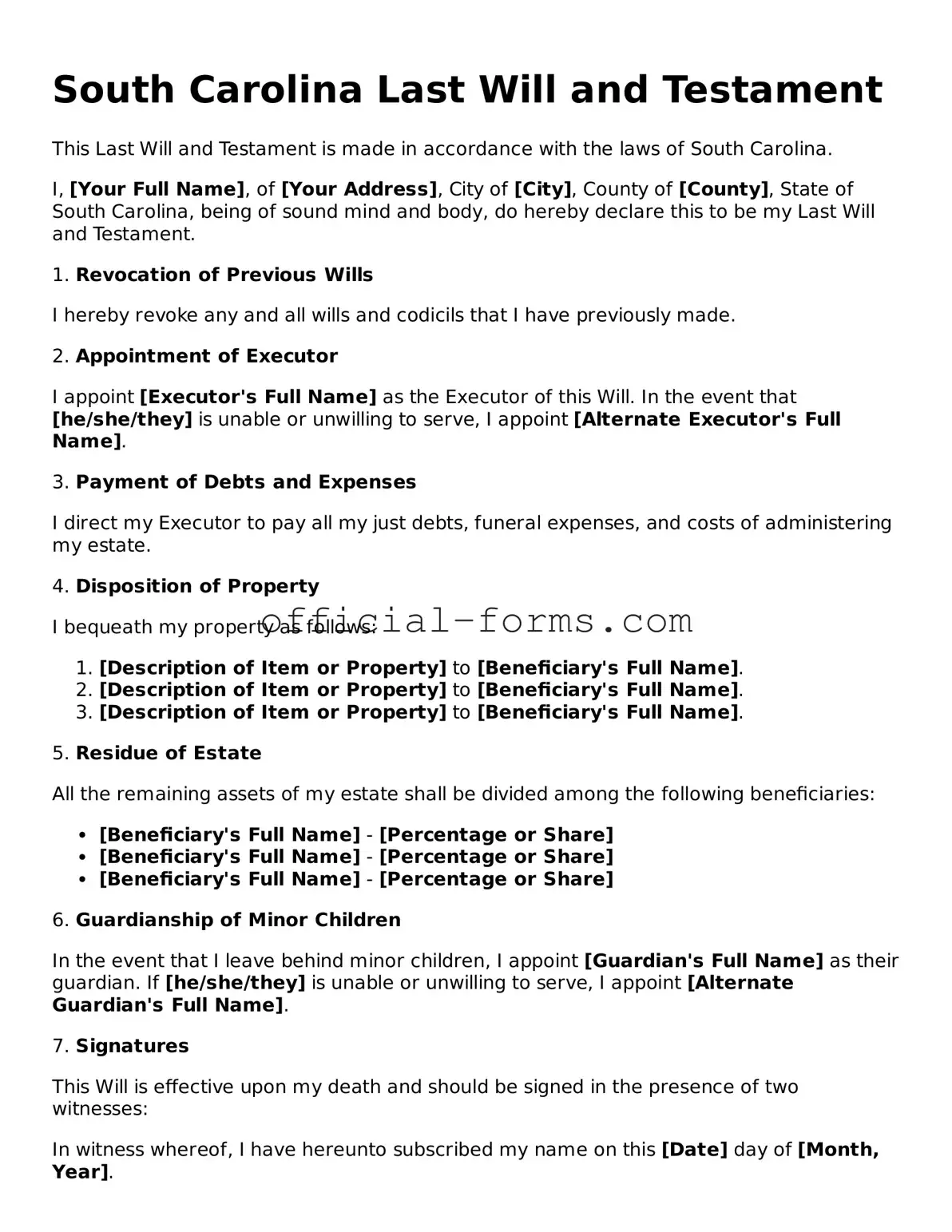Official South Carolina Last Will and Testament Document
The South Carolina Last Will and Testament form is a legal document that outlines an individual's wishes regarding the distribution of their assets after death. This form ensures that your intentions are clearly communicated and legally recognized. Understanding its components is essential for effective estate planning in South Carolina.
Open My Last Will and Testament Now

Official South Carolina Last Will and Testament Document
Open My Last Will and Testament Now
Don’t leave your form incomplete
Finish Last Will and Testament online quickly from start to download.
Open My Last Will and Testament Now
or
➤ PDF
